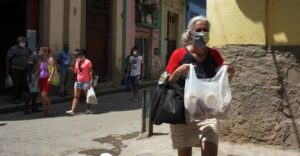Press reports citing both White House and Congressional sources have indicated that the Obama Administration is likely to relax regulations governing U.S. citizen travel to Cuba in the coming weeks. While the Administration cannot end the travel ban on its own, it has the authority to make substantial changes. WOLA sources have indicated that the Obama Administration will announce significant policy changes.
If and when that announcement is made, the questions followed by brief background we outline below should be useful in gauging the scope of the policy change. The Administration's response to these questions will help determine whether the changes will truly address the shortcomings of current policy by leading to an increase in the number of U.S. citizens who travel to Cuba in order to interact with the Cuban people, or whether they are more modest measures that do not significantly affect the status quo.
Educational Travel
Q: Do the new regulations permit universities to run study abroad programs in Cuba for less than a full semester? Will there continue to be restrictions on the duration of Cuba study abroad programs?
The new regulations are likely to make it easier for university study abroad programs to take students to Cuba. The Bush Administration prohibited universities from taking study abroad trips to Cuba unless the trips were a semester long, defined as at least ten weeks. That regulation meant that universities could no longer take students to Cuba for shorter stays, or combine stays in Cuba with stays in other countries, which was common among the vast majority of study abroad trips to Cuba in the past.
Q: Do the Obama Administration rules allow broader educational travel, permitting other educational institutions besides universities to take people to Cuba?
The Bush Administration prohibited educational trips organized by non-degree granting institutions. Thus a variety of educational institutions – such as museums, adult learning programs, cultural institutions, etc. – were prohibited from organizing educational trips to Cuba.
Religious Travel
Q: Do the new regulations make clear that all religious bodies – local, regional, and national – can apply for multiple-use licenses to take delegations to Cuba? Do they end the requirement that religious bodies submit the names of each participant in advance?
U.S. regulations, codified into law in 2000 as part of the Trade Sanctions and Export Reform Act, authorize travel to Cuba to engage in religious activities, such as meeting with sister churches or congregations. Until 2005, the Treasury Department interpreted this to mean that both individual congregations and regional and national religious bodies could apply for licenses to take groups to Cuba. Licenses were generally issued for a one year period, permitting multiple uses, and requiring that the religious body keep records of who had traveled. In 2005, the interpretation was narrowed, limiting regional bodies, such as a diocesan or state-wide church council, and national bodies, such as the national headquarters of a religious denomination, to licenses that allowed no more than one trip per quarter, and no more than 25 participants per trip. In addition, Bush Administration interpretations required church bodies to provide the names of each participant in advance as part of the application process, making it far more difficult to organize trips.
Cultural Travel
Q: Do the new regulations simplify procedures and make it easier for cultural, artistic, and sports groups to travel to Cuba for performances?
Current regulations allow cultural, artistic, and sports groups to apply for a specific license to travel to Cuba for performances. In practice, the regulations limit who can accompany the groups, and require that any U.S. profit from the performance be donated to an NGO or a charity.
General Travel
Q: Do the new regulations expand the categories of people who can travel on a general license without advance permission? Do they make the rules for receiving specific licenses simple and transparent?
Currently, most individuals or groups that wish to travel to Cuba need to apply for a license a recommended 45 days in advance from the Treasury Department's Office of Foreign Assets Controls. However, three categories of people are assumed to automatically be licensed – government officials, regularly employed journalists, and full time professional researchers – and can travel on a general license. Travel is relatively easy for those parties and when they purchase air tickets to Havana from the United States, they simply sign an affidavit stating that they are in one of the three approved categories. For those who do not fit in the three aforementioned categories, travel to Cuba can be a slow and onerous process, as they must request specific licenses and wait for the government's response.
Q: Do the new regulations authorize more airports to run direct flights to Cuba?
Direct flights to Cuba are permitted from Miami, Los Angeles and New York, though Bush-era restrictions reduced demand so much that the Los Angeles and New York flights were suspended in 2004 and have only recently been re-launched. Travel will be greatly facilitated if the regulations permit direct flights from other U.S. airports to accommodate the demand from Cuban-Americans and other U.S. visitors. A number of cities, including Tampa, have expressed interest.
Other Regulatory Changes
Additional measures to ease the travel restrictions might be approved as well. For example, the Administration could allow freelance journalists to travel to Cuba on a general license, or permit professionals to attend official conferences sponsored by Cuban institutions without seeking special permission. The Administration may also change the rules governing who can send money to individuals or groups in Cuba, making it easier for U.S. individuals and groups to support the research, travel, or other activities of Cuban scholars, religious workers, and others.
Beyond Administration Action
WOLA believes that the whole travel ban is an outdated policy that restricts U.S. citizens' rights and embarrasses the U.S. internationally, while doing nothing to improve the human rights climate in Cuba. While the Administration should do what it can to ease these restrictions, only an act of Congress can end them, as was established by law in 2000. Many members of the House have expressed their support for Presidential action and their determination to go even further by changing the law. We are hopeful that the House will act on the Peterson-Moran legislation that would end the travel ban when members return in September.
The Washington Office on Latin America has been working on Cuba issues since 1995 and supports a policy of engagement between the U.S. and Cuba through travel, citizen exchange, trade, and diplomatic engagement on issues of mutual interest. WOLA was instrumental in the efforts to end the ban on sales of food and medicine to Cuba, and our recent focus has been working with the Congress and the Administration to end the restriction on American travel to the island. WOLA is in regular communication with government officials in Washington on Cuba policy and with groups on the island. We would be happy to provide further background information, commentary and analysis on Cuba policy developments.
Please feel free to contact Geoff Thale, WOLA Program Director (gthale@wola.org) or Ashley Morse, WOLA Program Officer (amorse@wola.org) for more information or consult our webpage www.wola.org or our Twitter feed @WOLA_org for up-to-date information.



